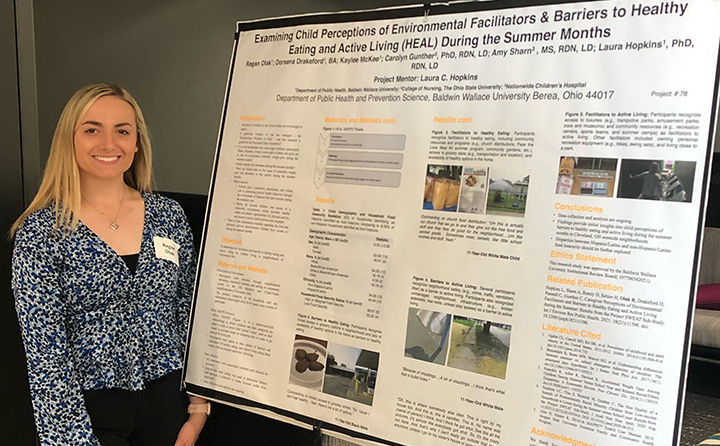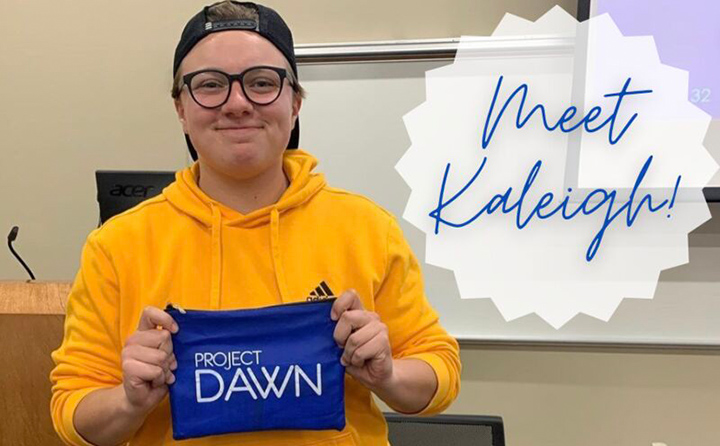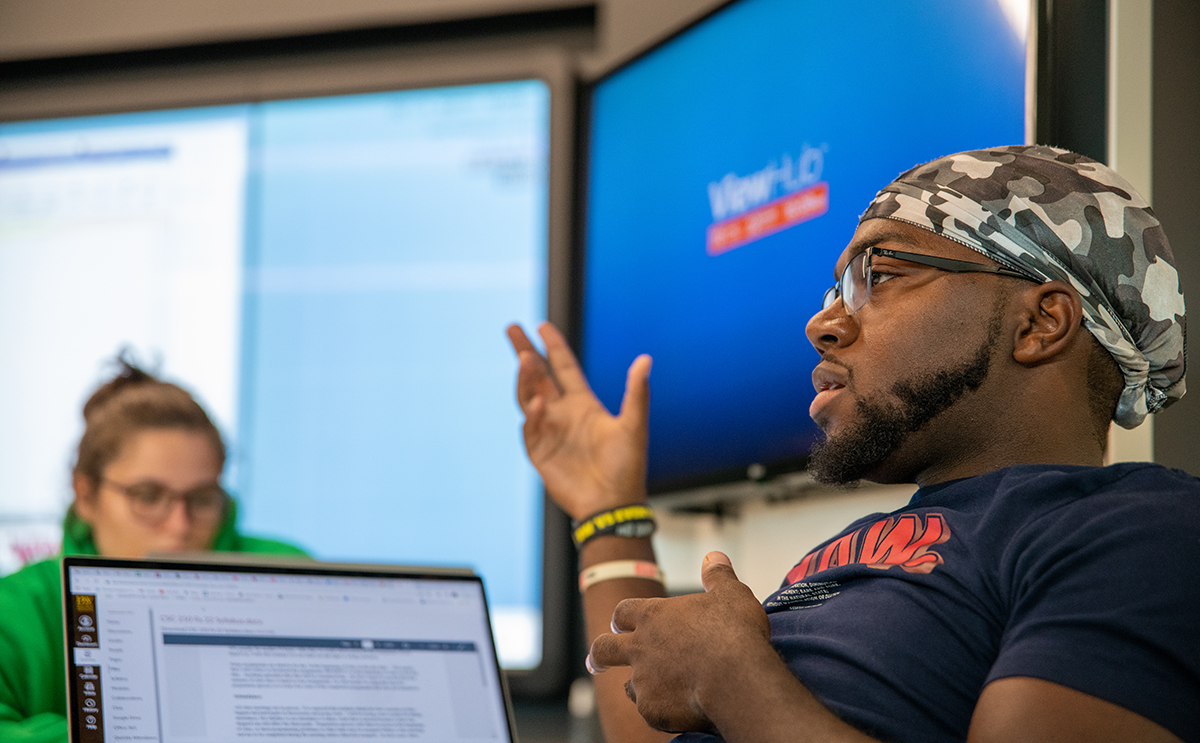Growth in BW public health program helps fill 'desperate' workforce need
The growing popularity of the undergraduate public health major at BW mirrors a national trend and offers broad application after graduation.

Noting the growth in public health undergraduate degree programs in the past decade, a recent article in Inside Higher Education asked, "Could Undergrads Save the Public Health Workforce," a field that "desperately needs more workers?"
According to a study cited in the article, graduates with a bachelor's degree in public health jumped by more than 1,100% between 2001 and 2020, a growth trend line that has also played out at BW, where enrollment of undergraduate public health majors has grown more than 10-fold since 2011.
Broad experience and application

Regan Olak '23 says BW's program, among the first in Ohio, has given her a broad foundation of knowledge and skills, which can be applied to a variety of roles within the field.
"As a first-year student, I chose public health as a major as I wanted to go into a health-related career but was not sure as to what exactly. I decided public health would provide me a strong foundation that I could take into any profession," Olak explains.
Since then, Olak's varied BW experience has included providing Naloxone training in her role as vice president for BW's Public Health Club, serving through AmeriCorps and CHANGE, INC. as a community health navigator to improve food security in Cleveland and engaging in academic research collaborations with Dr. Laura Hopkins.
"It is such a great accomplishment to say I am a published author on several manuscripts. Overall, I believe this is the standard across the public health department; students graduate with incredible experiences and opportunities that elevate their knowledge and connect classroom learning to community settings."
Taking on health disparities

Kaleigh Loyd '24 sees public health, in all its applications, as a helping profession. "I chose to pursue public health as my major because I wanted to be able to help people by working to make positive changes, big or small, present day and long after I'm gone."
She adds, "Public health is a vast field that is vital to our functioning as humans who deserve to be healthy: mentally and physically, properly nourished, protected, and comfortable in a safe environment, regardless of any social determinant."
"I am always shocked at how aware students are of health disparities," Hopkins notes about the growing understanding of the inequities that helps to drive interest in the public health sector. "This awareness existed before COVID, but I do think that COVID shed a brighter light on this as well."
Varied career applications
While a public health master's degree is often preferred for more specialized and advanced positions, such as epidemiologists, biostatisticians or health policy analysts, undergraduate degree-holders can work in community health outreach, health education or program coordination in a variety of settings, such as hospitals, government agencies, nonprofit organizations or private companies.
Loyd, a STEM scholar and Ratcliffe Student Fellow, aims to become a certified health education specialist (CHES) and work for a nonprofit or government agency.
"My special educational interests are in sex-related education, risky behaviors and outcomes for youth, and LGBTQ+ specific health topics," Loyd says. "The curriculum and my professors at BW have given me the perfect balance of guidance and freedom to be able to take as many relevant courses as possible for success in a wide range of public health fields of expertise."
Graduate school and beyond
For Olak and others like her, the degree serves as a foundation to pursue an advanced degree. She plans to gain experience working in a clinical setting and then apply to physician assistant programs.
Other public health majors go on to pursue graduate degrees in medicine, nursing, social work and public health.
Dr. Emilia Lombardi, chair of the BW Department of Public Health and Prevention Science, adds, "I've had students tell me that the public health route into medical school was valuable because they receive a holistic understanding of health. Public health requires interacting with the public, so communication skills are important, along with critical thinking and analytical skills. Our graduates are prepared to contribute in many ways."



